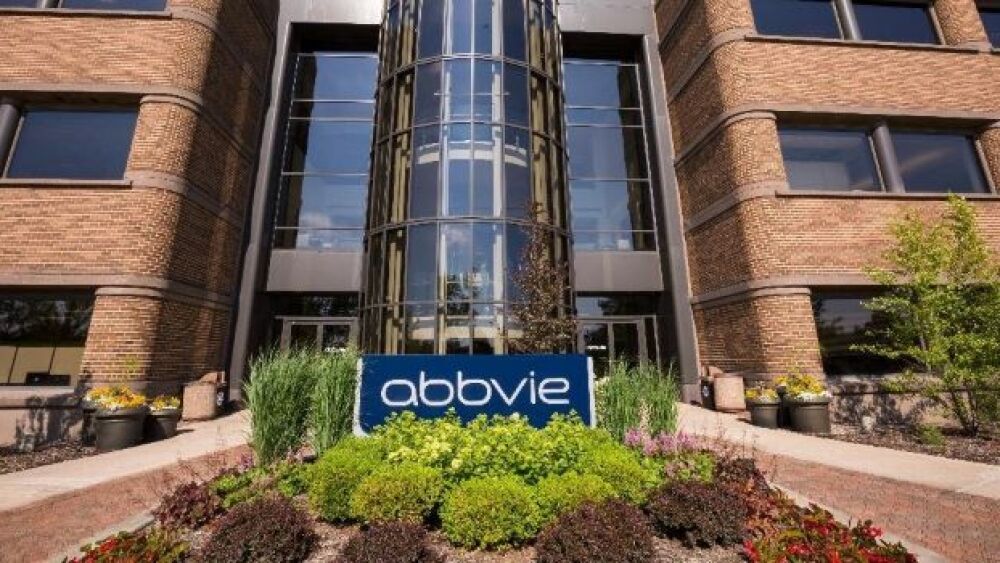The company saw global net revenue of $13.9 billion during the second quarter, an increase of 33.9%. Sales were primarily driven by its immunology portfolio, which generated $6.12 billion.
© AbbVie Inc. All rights reserved.
AbbVie’s Rinvoq continues to demonstrate its clinical potential to become the heir-apparent to the company’s blockbuster drug Humira, which will lose patent protection in 2023. In its second quarterly report, AbbVie touted advances Rinvoq has made throughout the three months, including positive Phase III data in ulcerative colitis.
In total, the company saw global net revenue of $13.9 billion during the second quarter, which was an increase of 33.9%. Sales were primarily driven by the company’s immunology portfolio, which generated $6.12 billion, an increase of 15.1%m.
While Humira is still the company’s cash cow, bringing in $5.068 billion for the three month period, Rinvoq is steadily growing in revenue generation and regulatory wins.
AbbVie said more patients treated with Rinvoq (upadacitinib) achieved clinical remission in the recently announced ulcerative colitis study compared to placebo. As BioSpace reported last month, 49% of patients treated with 15 mg of Rinvoq and 62% of patients treated with 30 mg of the medication achieved endoscopic improvement at 52 weeks compared to 14% of patients who received placebo.
Additionally, the patients who received Rinvoq achieved the study’s histologic-endoscopic mucosal improvement (HEMI) endpoint. AbbVie said 35% of patients on the 15 mg dose and 49% on the 30 mg hit that endpoint compared to 12% of patients who received placebo.
Rinvoq is moving closer to approval in Europe for moderate to severe atopic dermatitis. During the quarter, the European Medicines Agency’s (EMA) Committee for Medicinal Products for Human Use (CHMP) gave the nod to Rinvoq as a potential treatment for expanded use of the medication in adolescents and adults with moderate to severe atopic dermatitis who are candidates for systemic therapy.
The European Commission is expected to decide this indication in the third quarter of 2021. If the EC approves Rinvoq for this indication, it will be the fourth approval for the drug in Europe.
Rinvoq is a small molecule JAK inhibitor and was first approved to treat rheumatoid arthritis in 2019. Since then, it has been recommended to treat active psoriatic arthritis and treat active ankylosing spondylitis in adult patients who have responded inadequately to conventional therapy. AbbVie has been evaluating the medication in different inflammatory disease indications, including in atopic dermatitis, Crohn’s disease, ulcerative colitis, giant cell arteritis and Takayasu arteritis.
While the second quarter was largely good for Rinvoq, AbbVie did note a delay in potential approval from the U.S. Food and Drug Administration in active psoriatic arthritis and adults with active ankylosing spondylitis. AbbVie said an ongoing review of Pfizer’s post-marketing study, ORAL Surveillance, evaluating Xeljanz (tofacitinib) in patients with rheumatoid arthritis was the reason provided by the FDA for delay of review for its supplemental New Drug Applications.
Another AbbVie drug that could help fill the revenue gap for the company after Humira loses protection is Skyrizi, which generated $674 million during the quarter. During the three month period, AbbVie submitted applications for approval from both the FDA and the European Medicines Agency to treat adults with active psoriatic arthritis.
Two Phase III studies showed Skyrizi demonstrated improved skin and joint symptoms and physical function in patients. Additionally, a greater proportion of patients achieving minimal disease activity versus placebo.
AbbVie’s oncology portfolio also performed well. Global net revenues for its hematologic oncology portfolio, driven by Imbruvica and Venclexta, increased 14.8% to $1.816 billion for the quarter. Imbruvica generated $1.3 billion and Venclexta brought in $435 million, increasing 43%.
The company continues to see positive financial gains from its acquisition of Allergan, including the flagship migraine and aesthetic drug, Botox. When used as a migraine treatment, Botox generated $603 million, a 100% increase over the same period one year ago.
As an aesthetic treatment, Botox generated $584 million, increasing more than 100%. In all, the company’s neuroscience portfolio generated $1.45 billion and its aesthetics portfolio brought in $1.43 billion for the three month period.
“The Allergan integration also continues to track exceptionally well, with both the neuroscience and aesthetics portfolios delivering double-digit sequential growth,” Richard A. Gonzales, chairman and chief executive officer of AbbVie said in a statement.
Featured Jobs on BioSpace





